The Maybourne Hotel Group (MHG) was seeking noise and vibration isolation solutions for the Berkeley Hotel in Knightsbridge, London.
The primary goal of the project was to isolate against ground-borne vibration, primarily from the nearby Piccadilly Line that runs just a few metres to the north of the site, as well as to provide the required level of noise isolation within each guest room.
This included elements in both the renovation of the existing building and the new extension.
Mason UK was awarded the contract which included the supply of several bespoke building isolation bearings, the design and supply of floating floor solutions, and the supply of acoustic hangers and other products for “box in box” structures.
Eleanora Bressi, architectural director at the MHG, said: ‘‘The biggest challenge was to have a building without noise because it’s a hotel, so you can imagine the performance specification is rather stringent in terms of acoustics.’’ At the basement levels, Mason UK were working to achieve a ‘‘silent spa’’ which is ‘‘almost impossible.’’
The isolation for the new block was tackled with two solutions: box-in-box construction for the ground floor and basement levels, with the rest of the 5000 tonne structure from the first floor and above supported on spring bearings designed to have a natural frequency of 3.0Hz or less, as specified by acoustic consultant WSP.
The primary goal of the project was to isolate against ground-borne vibration, primarily from the nearby Piccadilly Line that runs just a few metres to the north of the site
According to the team, the spring bearings were designed to last the life of the building and to accept substantial wind loading without the need for supplementary restraints, which would have compromised the level of vibration isolation.
Custom spring bearing packs support the entire building from the ground floor upwards. Mason UK worked with the architect to locate the bearings within recesses in the ground floor to allow a clean finish around the columns.
Pre-compressed spring bearings were designed to release at seventy percent of the final load advised by WSP, who was also the structural engineering consultant for the project.
The box-in-box elements for the new block consisted of 100mm concrete floating floors for the ground floor and three basement levels, covering almost the entire footprint of the building at each level. The floors for the basement levels were designed to accept a steel frame and inner box walls constructed on top of the floating floor.
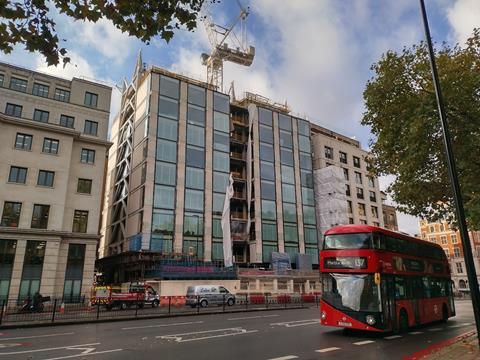
For the first two basement levels B1 and B2, the FSN LDS jack up rubber system with a natural frequency of circa 8 to 10Hz was specified. For B3, the closest floor in level to the Piccadilly Line, the FS helical spring jack up system with a natural frequency of sub 4Hz was needed.
As part of the specification process, Mason UK assisted in the construction of a test floor designed to simulate the final build and ascertain what level of performance could be achieved. The tests proved useful for the principal contractor to understand the specific requirements of a box-in-box construction.
On each level, extra jacks were incorporated into the design to account for the point loads imparted by the internal steel frame. The design for each floor was carefully coordinated with the structural engineer, architect, and contractor to account for all internal wall loads, finishes and floor penetrations.
Due to the construction sequencing of the project, the floor for each level had to be cast and jacked while the tower crane was still in place. Working around this, the team designed the infills areas to seamlessly integrate with the main jack up floor slabs on each level.
As part of the specification process, Mason UK assisted in the construction of a test floor designed to simulate the final build and ascertain what level of performance could be achieved.
As part of the renovation of the existing building, Mason UK worked with the contractor on site to design and supervise the installation of floating floors from levels one to eight. Due to structural limitations and logistical restrictions, a dry system was specified. The system proposed consisted of several layers of cement particle board supported on isolators with a natural frequency of circa 8 to 10 Hz.
In addition to the floating floors, each level required an acoustic ceiling system to ensure the required level of noise isolation. The team designed isolated ceilings suspended from rubber ceiling hangers supporting a grid of Unistrut and a heavy build-up of several layers of cement particle board and dense plasterboard.
The design team are pleased with the end result, a luxury hotel isolated against ground-borne vibration and with a high level of noise isolation in each guest room. Providing acoustic solutions for hotels can be challenging, especially if the hotel in question has close proximity to a major tube line, and a successful outcome necessitates close collaboration with the whole design team.




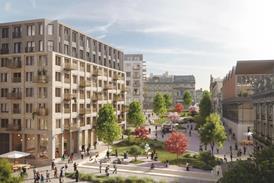
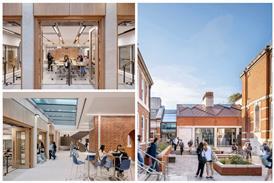



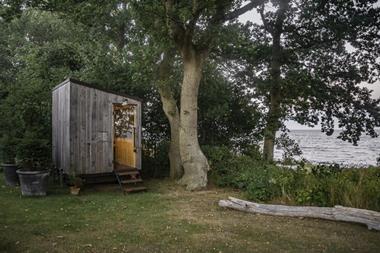
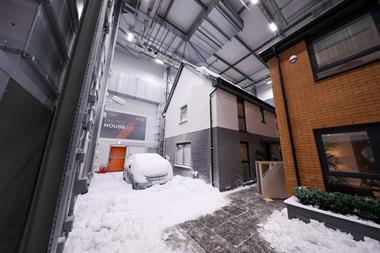
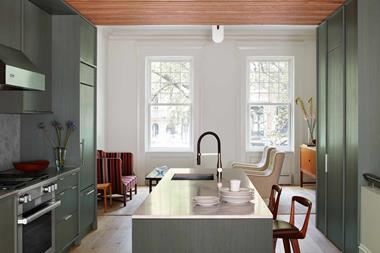
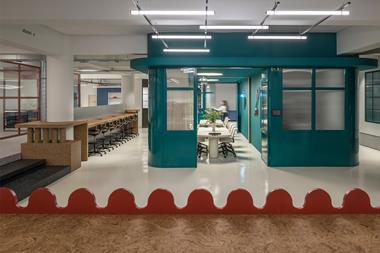
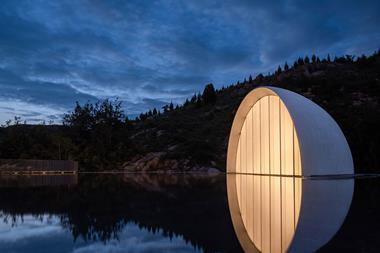

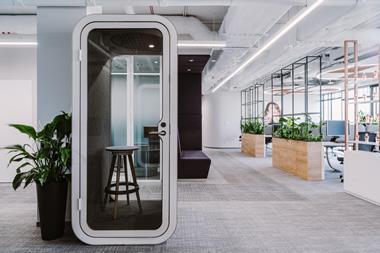





![Tarmac launches CEVO Asphalts Carbon Calculator for instant data on embodied carbon of asphalt mixes 02[87].jpg](https://d3rcx32iafnn0o.cloudfront.net/Pictures/100x67/9/7/6/2023976_tarmaclaunchescevoasphaltscarboncalculatorforinstantdataonembodiedcarbonofasphaltmixes0287.jpg_435882.jpg)
No comments yet